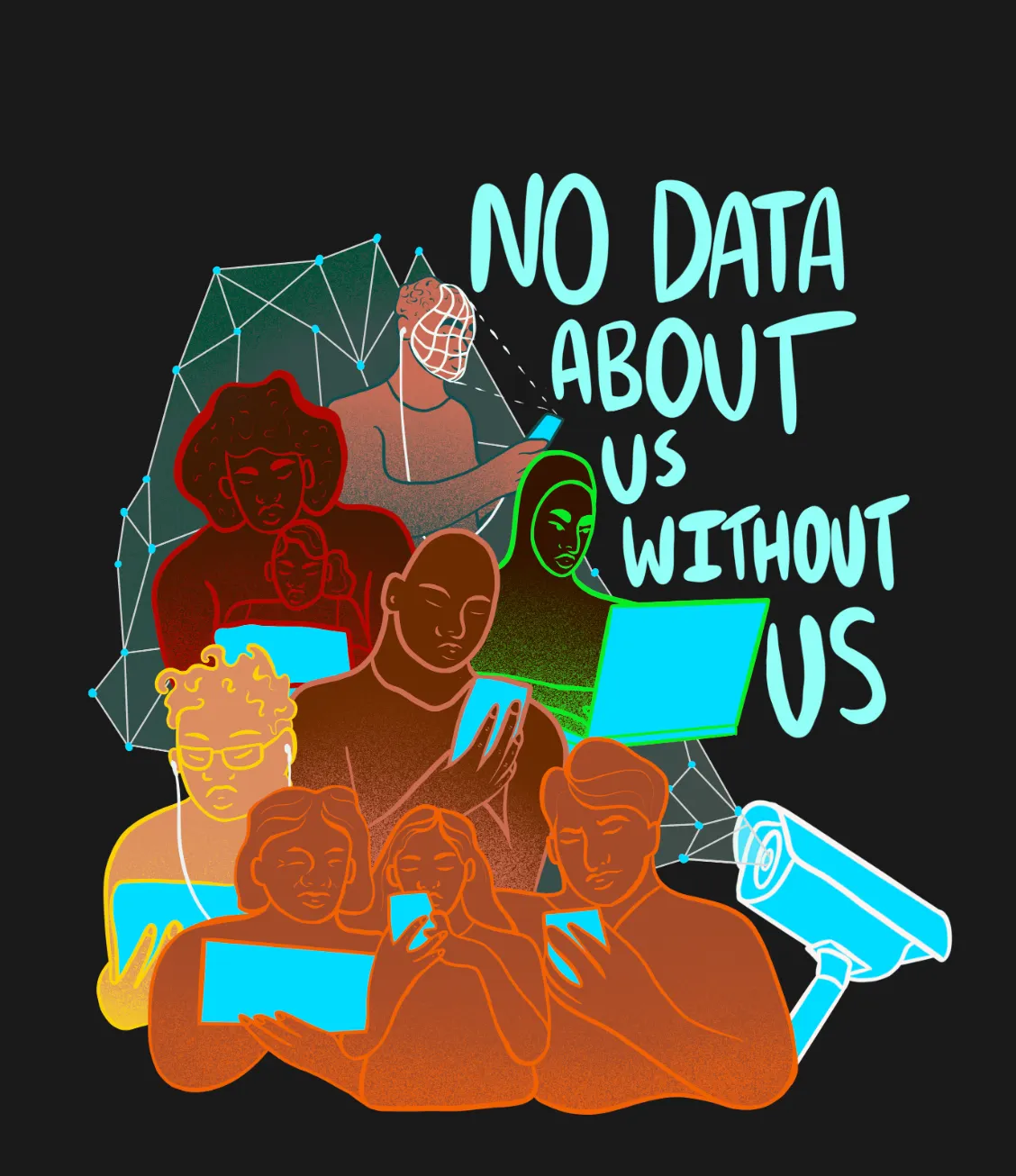An Interview with the Designer of Decoding Medellín
We sat down with Sara Arango Franco, team member and one of the primary facilitators and designers of our new data analysis workshops to talk about the motivations behind the program and how it’s gone so far.
%204.47.15%20p.%C2%A0m..png)
Photo by Camila Roldan
What is “Decoding Security, Coexistence, and Surveillance in Medellín” and how does it differ from “We are Recording You,” the research sprint that Edgelands did in the fall of 2021?
“Decoding” is a series of data workshops for those both interested and with experience in data analysis and visualization. The objective is to gain experience analyzing the open data that is gathered on citizens and the security of the city through what we could call surveillance efforts. Our aim is to create a space to develop skill sets that allow participants to respond to security questions that have the potential to develop into policy or public initiatives.
The difference with We are Recording You is that the Decoding workshops are directed specifically towards a population with skills in data analysis and are meant to be hands-on from the beginning. If you observe the schedule of both workshops, you’ll see that We are Recording You had many more guest speakers and more time dedicated to discussion of topics related to security and surveillance. We think that both programs compliment one another quite well. In fact, one of the participants of We are Recording You attended the first few sessions of Decoding (although she had to stop because she started a new job).
How is the program designed?
Participants meet for 8 weeks. In week 9, they will present the results of their research to an audience within our Edgelands network: decisionmakers, academics, and others who are relevant to the discussion.
- Project Supporters: these are groups or institutions in Medellín that work on security issues and who have proposed questions for the participants to resolve throughout the 8 weeks of the workshop. In our case, these groups are the Center for Political Analysis at EAFIT University (CAP), the Information System for Security and Coexistence (SISC), and Casa de las Estrategias.
- Mentors: are 6 experts in data analysis who are responsible for one of each of our project groups. They guide the participants in their work.
- Participants: About 25 participants meet regularly and are divided into 6 workgroups. Participants are mostly economists, mathematical engineers, and political scientists (and a couple people who study psychology or business). Participants were placed into workgroups based on their application responses as well as the technical requirements for each project.
- We’ve also had guest speakers in almost every session: these are experts in data who have worked on matters related to security in Colombia and beyond.
What is a typical session like?
A typical session consists of:
- A quick recap by the Edgelands team on what the previous session consisted of, plus any general announcements;
- On occasion (and in the majority of sessions up to this point), a presentation by a guest speaker who shares their experience in applied research and the role of data in their research; and
- Group work (participants and mentors) to develop the research questions that the project supporters have pitched.
What are some of the questions that participants are currently researching?
Our six workgroups are investigating the following questions:
- Gender-based violence in Medellín: We are analyzing an array of metrics to establish if there are zones of the city in which vulnerable groups are less likely to ask for help before a violent act or a femicide (project supporters: Casa de las Estrategias & CAP. Mentor: Sarah Henao)
- Criminal “ghettos:” Data analysis to determine if it is possible to deduce zones of the city where there are dynamics of a “ghetto” (project supporter: Casa de las Estrategias. Mentor: Santiago Rodríguez)
- Sentiment analysis on Twitter: A pilot program that gathers tweets related to the perception of security in Medellín and studies how they are related with existing metrics of security. (project supporter: SISC. Mentor: Felipe Mira)
- Study on the correlation between “hard” metrics of security (in this case, theft) and perception (project supporter: SISC. Mentor: Andrés Pérez
- Study on the relation between urban configuration and the dynamics of security (project supporter: SISC. Mentor: Jessica Salazar)
- Exploration of the ways to visualize and communicate homicide rates in Medellín to the public (project supporter: Casa de las Estrategias. Mentor: Manuela Henao)
How does this research apply to real life issues?
All the research projects were pitched by the project supporters mentioned. These projects are based on long-standing issues in the city. It’s our hope that the outcome of these research projects can offer our project supporters a space or a buffer (as these public-facing organizations - along with many others - rarely have the time to explore such questions as they are always attending to urgent issues) to resolve these types of innovative questions and also accelerate their own internal processes with how they engage with the public. The work that SISC does is directly related to public policy, as they are part of the Secretariat of Security. Casa de las Estrategias is one of the most important actors in the city, via the focus of a think-do-tank.
How can one “decode” security, surveillance, and/or coexistence?
One can do so with the understanding that there’s not just one unique code and that data is always a limited representation of reality (but not to rule it out, for this reason either!). The true decoding comes when someone understands the process through which data and numbers end up being representations and can interpret them.
Has anything surprised you about the program so far?
The huge interest that we received from all those who applied although the time commitment is demanding — almost as long as an entire academic semester!
How will the program finish?
The final session will consist of the workgroups presenting the results of their research to the project supporters, guest speakers, and others within the Edgelands network. We plan to publish the results of this research on our website and social media and ensure that this research has the biggest impact possible. Throughout all this, the more new alliances and projects that can come from our work in these workshops, the better!



